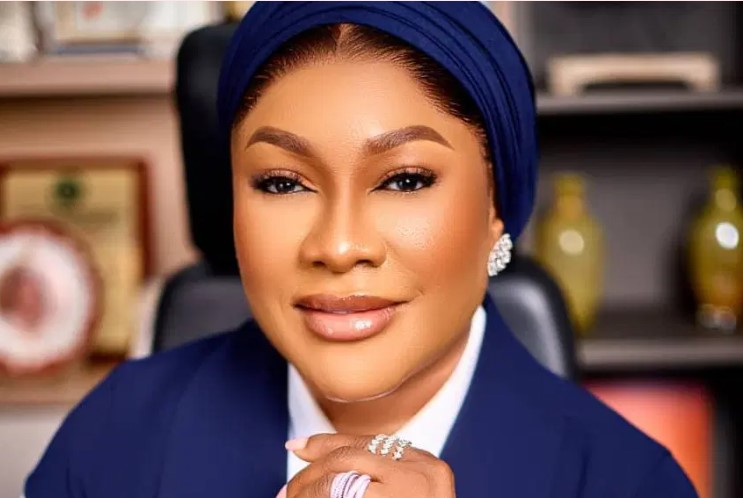Aisha Achimugu, a businesswoman embroiled in an investigation by the Economic and Financial Crimes Commission (EFCC), has been ordered by Justice I.E. Ekwo of the Federal High Court, Abuja, to appear before the commission on Tuesday at noon. This order comes amidst a legal tussle between Achimugu and the EFCC, alongside other security agencies, regarding her potential arrest and detention. Following her appearance at the EFCC, she is required to return to court the following day, Wednesday, for a report on the meeting. Achimugu’s legal counsel, Kehinde Ogunwumiju, SAN, had filed an application seeking protection for his client against potential harassment or detention by the EFCC after she agreed to honor the commission’s invitation for continued investigation.
This latest development follows an earlier court order on April 11th, directing the EFCC and five other security agencies – the Nigeria Police Force (NPF), Independent Corrupt Practices and Other Related Offences Commission (ICPC), State Security Service (SSS), Nigeria Security and Civil Defence Corps (NSCDC), and the Nigerian Immigration Service (NIS) – to file their defenses in a lawsuit initiated by Achimugu. The lawsuit, a fundamental rights enforcement suit, aims to prevent her planned arrest and detention. Justice Ekwo’s initial order came after the respondents failed to appear in court despite being served with an earlier order to show cause why Achimugu’s requests should not be granted.
Achimugu, an industrialist, filed the ex-parte motion to protect her fundamental rights, including freedom of movement, liberty, privacy and property. She argued that the EFCC’s declaration of her as “wanted” on March 28th was unwarranted, unjustifiable, and lacked probable cause. Achimugu further contended that the declaration was designed to damage her reputation, humiliate her, and subject her to public condemnation, potentially causing irreparable harm to her personal and professional standing. The court granted the respondents a final opportunity on April 11th to present their arguments against Achimugu’s claims, adjourning the hearing until Monday.
During Monday’s court proceedings, representatives from the ICPC, SSS, EFCC, and NIS were present, while the NPF, NSCDC, and NIS had yet to file their responses. Ogunwumiju, acknowledging Achimugu’s planned return to Nigeria on Tuesday and her intention to report to the EFCC at noon, expressed disappointment that the respondents hadn’t responded promptly to their application. He highlighted Achimugu’s willingness to cooperate with the investigation, as stated in her affidavit, and requested the court to order her continued release on bail, referencing the EFCC’s own affidavit acknowledging her previous grant of administrative bail. Ogunwumiju also urged the court to consider Achimugu’s son, who has special needs, in its decision.
Ekele Iheanacho, SAN, representing the EFCC, opposed Ogunwumiju’s application, citing a previous court judgment on February 19th that dismissed a similar suit filed by Achimugu. Justice Ekwo, however, directed Iheanacho to focus on the current ex-parte motion and the respondents’ obligation to show cause. The judge questioned the controversy surrounding Achimugu’s willingness to appear before the EFCC while already on bail. Iheanacho argued that Achimugu’s application was speculative as her rights hadn’t been violated and claimed she had breached her administrative bail conditions by previously refusing to honor invitations. Justice Ekwo emphasized that Achimugu’s appearance would constitute surrender, rendering the current application moot, according to Iheanacho. Ogunwumiju then proposed an adjournment until Wednesday, suggesting that the suit could be withdrawn if his client was allowed to remain on bail.
Following the arguments presented, Justice Ekwo ordered Achimugu to appear at the EFCC office on Tuesday. The judge acknowledged the EFCC’s constitutional right to conduct investigations and Achimugu’s willingness to cooperate, finding no reason for controversy. The court ordered Achimugu to appear before the EFCC on April 29th, 2025, as stated in her affidavit, and directed the EFCC to return with Achimugu to court on April 30th, 2025, to report on her appearance. The EFCC’s affidavit to show cause, detailed the background of the investigation, outlining a series of financial transactions and allegations of corrupt practices related to the acquisition of oil blocs.
The EFCC averred that Achimugu, during a February 12th, 2024, interview with the commission, explained that a substantial sum of N8.71 billion paid into her corporate accounts represented an investment fund from partners for acquiring an oil bloc. However, subsequent investigation revealed that Achimugu, through her company Ocean Gate Engineering Oil and Gas Limited, had acquired two oil blocs for a total of $25.3 million, primarily through cash payments to Bureau De Change operators who then made payments to the Federal Government. The EFCC alleged that the source of these funds couldn’t be traced to her legitimate earnings, income, or any business partner, suggesting corrupt practices, including bribes to officials of the Nigerian Upstream Petroleum Regulatory Commission. Furthermore, the EFCC claimed that neither of the acquired oil blocks had commenced exploration or production. Following the dismissal of Achimugu’s previous lawsuit, the EFCC continued its investigation, sending letters to government agencies such as the Federal Inland Revenue Service (FIRS) and the Central Bank of Nigeria (CBN), and uncovering a network of 136 bank accounts operated by Achimugu across ten different banks, both personally and corporately.














